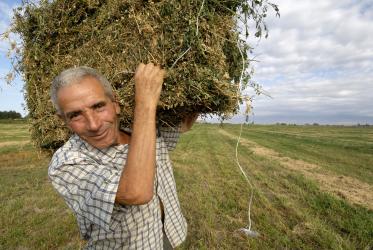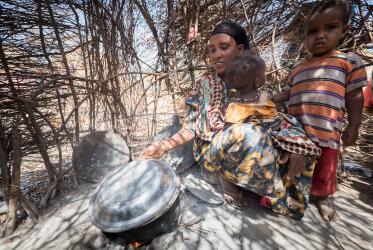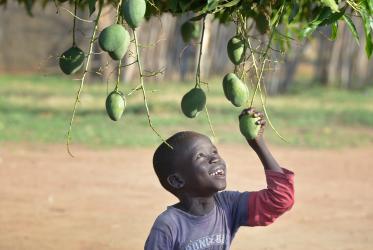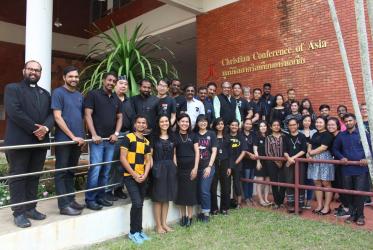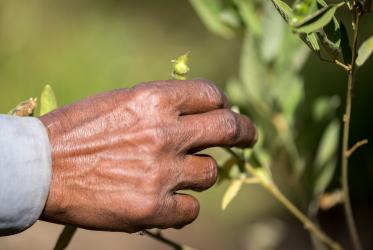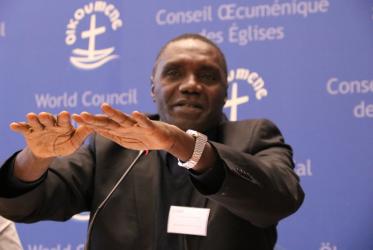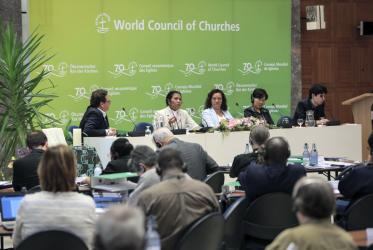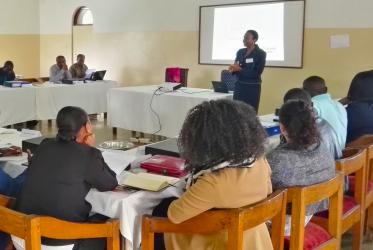Displaying 1 - 20 of 22
HIV and AIDS Civil Society Networks and the Faith Sector
Lessons Learnt from Strategic Engagement in India, Dominican Republic, Indonesia, and Jamaica
31 January 2023
WCC invites webinar on ’Racism, Land and Food’
09 December 2021
WCC Eco-School 2020 for Pacific region is further postponed
14 January 2021
Agreement works toward food security in South Sudan
23 February 2019
African youth takes stand at first ever WCC Eco-School
03 August 2017
Applications open for WCC Eco-School
10 May 2017

